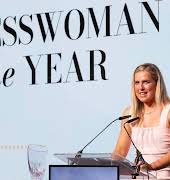Our current inflexible work culture is making parenting harder than it should be
By Nathalie Marquez Courtney
06th Jan 2020
06th Jan 2020
I’m throwing a guilty mum party – and attendance is mandatory. Here’s why our current work culture is making parenting harder than it should be, writes Nathalie Marquez Courtney
My one-year-old son dozily opens his eyes, smiles up at me and lays a pudgy, sleep-warm hand on my face. I breathe in his scent and, though I would love nothing more than to stay lying there beside him, tiptoe away with all the stealth of an MI6 spy as soon as he’s asleep. Forty minutes later, cup of tea in hand, I’m deep in a writing flow when the baby monitor chirps into life. And I can’t help the feelings that bubble up next – resentment, frustration, followed instantly by guilt. Where minutes ago it took all my willpower to tear myself away from my sleeping babe, now I’m summoning the strength to push away from the desk and go tend to him.
I didn’t realise there was a name for what I was feeling until I interviewed Kim John Payne. The bestselling author of Simplicity Parenting has travelled the world talking to parents of all ages and backgrounds and has coined a term for this internal conflict: the “provide protect divide”. “Many women I speak to feel very, very torn,” he explains. “Because our instinct is to be available for our kids, and that’s a really deep instinct. It’s still very much alive. Yet there is also an instinct to provide for our kids, right? Provide, protect – it’s pulling moms in two different directions.”
“It leaves so many women feeling fragmented,” he continues. “It can lead to a lot of tension in families and creates very deep mixed loyalties.”
WORKING 9-5 (AND THEN SOME)
It doesn’t help that there has never been more pressure to be present and available than there is in today’s workplace. Firstly, there’s the pervasive presenteeism that so many businesses suffer from, the kind that makes you feel like you’re getting sideways glances if you leave the office in time for school pick-ups. Then there’s our always-on digital culture – the technology that was meant to free us from the shackles of our desks has instead made us prisoners to our phones, jumping to attention at every beep and notification, no matter who we’re with and where. And sadly, with women already struggling for equal footing in so many industries, it means mothers who also work outside the home get hit the worst. On average, Irish women get paid 14 per cent less than men (and as much as 23 per cent less for managerial jobs). With spiralling rent, property and childcare costs, many households don’t have any choice but to let the higher earner – so often the man – return to work full time. This means the mother either leaves the workforce entirely (450,000 Irish women state their role as “home duties” compared with 9,000 men) or finds a way – albeit a harried, stressful, fragmented one – of fitting in work and family. How would things be different if both partners could get flexibility from the get-go? If parenting duties were more shared from the start? Could flexible working be the key to less parental guilt at home (and more fulfilment at work)?
SOMETHING’S GOT TO GIVE
In a recent survey by EmployMum, a Cork-based recruitment agency that specialises in flexible working (employmum.ie), 67 per cent of people reported there being no policy of flexibility within their organisation, yet a whopping 92 per cent of respondents would leave their current job for a position that offered more flexible work. “It should be a wake-up call for employers,” says EmployMum founder Karen O’Reilly. Her company’s survey also highlighted how much fear there is – especially among mothers – when it comes to even asking for more flexible hours. “Fifty-eight per cent of people wouldn’t feel confident asking for flexibility,” says Karen. The reasons given make for grim reading: “Most of management are male and unapproachable when it comes to flexibility,” said one respondent. “I’m afraid to ask, as it will be seen as an inconvenience,” said another. “I asked and they said, ‘Go get another job,’” read one. “Confidence is a major issue,” says Karen. “Whether it’s getting back into the workplace after having kids or trying to negotiate a more flexible position, it’s the one big issue we come up against every single day.” But it’s clear that it shouldn’t be. With Ireland approaching full employment and a new EU work-life balance directive on the way, the scales could – and should – finally be able to tip in the right direction. “We’re living on the brink of the fourth industrial revolution, with artificial intelligence and robots now part of our daily lives – and yet you have an employer who says you must be sitting at your desk from 9-5? That’s just a crazy concept,” says Karen. Mothers have often been forced to try and find different ways of working, but it’s become clear that they’ve been ahead of the curve. The hunger for a more flexible approach to work is growing, and not just among women. “Last year, over 20 per cent of our placements were men,” says Karen, explaining how it inspired her to start up EmployFlex, a sibling company, earlier this year (employflex.ie). “It signals a slow, but definite attitude shift in how people look at flexible work,” she adds. “Companies are realising that by offering flexibility, they can reach a wider pool of talent, and obtain and retain the best people out there.” Why haven’t more companies adopted a more flexible approach? There are myriad reasons. “Trust is a huge factor,” says Karen. “Many employers don’t trust their employees to work remotely or work flexibly.” Many companies are lacking the structure, training and knowledge of digital tools necessary to make communicating and collaborating in this new way possible (though companies like Karen’s now offer training to support businesses eager to transition to a more flexible model). But it is possible, no matter your industry. “Every single job can be done with some degree of flexibility,” she asserts.
MAKING WORK WORK FOR YOU
“My husband and I had always been really equal in our careers and at home – we lived in this dream world of equality,” laughs Lizzie Penny, CEO and co-founder of Hoxby, a global network of freelancers. “Before, I was always the first at my desk and would often work late because I liked to be on top of things. Then when I had my son, it brought into really sharp focus that there were some real problems in the world.” It inspired Lizzie and her co-founder, Alex Hirst, to create Hoxby, a “virtual” agency that allows its community of freelancers to work when and how they choose (hoxby.com). Clients include Amazon, Deloitte and Unilever. The Hoxby model tips traditional thinking on its head: “For parents, it means that they can do something they genuinely want to do rather than taking whatever job just so happens to allow them to work the hours that suit their family life,” explains Lizzie. “The nine to five working day is over 200 years old,” she adds. “We have reached a tipping point with it – we shouldn’t have the disparity that we have, with 89 per cent of working parents wanting to work flexibly versus only 49 per cent who do.” The deep tug to be present for our families puts many parents in a unique position to be at the forefront of a work revolution, one that not only benefits everyone in the workplace, but has the potential to level the playing field a bit. Instead of feeling guilty and torn, we can use these feelings as fuel to demand a more sustainable way of working; mothers shouldn’t feel they have to apologise for wanting to find fulfilling, meaningful work that fits into their lives. As one survey respondent put it: “Flexible work should be a policy, not a favour.”
Photography by Ben Keenan.

This article originally appeared in the December issue. The Volume 1 (January/February) 2020 issue of IMAGE Magazine is on sale now.
Read more: Editor’s Welcome – Lizzie Gore-Grimes on living with less
Read more: Your 2020 horoscope is here: an astrologist on what’s coming for your starsign this year
Read more: Kim Gray’s life hacks for minimalism, living with less and cutting out clutte






















